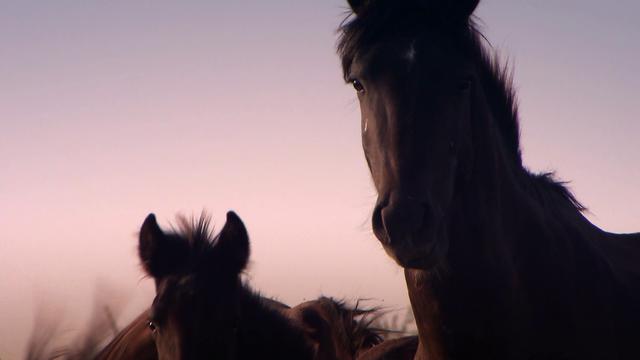Documentaries about eco-systems have a surprising history of being able to circumnavigate their potentially dry subject matter and deliver powerful, interesting and, oftentimes, fun features. The most famous, of course, is Al Gore's An Inconvenient Truth which could best be described as a "Feel Good Armageddon" film due to the unsuspecting doses of warmth and jocularity Gore brought to the subject. Cane Toads: An Unnatural History, as another example, is an Australian documentary tracking the damage done to the country's eco-system via the introduction of a non-indigenous species initially meant to kill parasites; this backfired when the toads ended up multiplying and became a danger themselves and their habitat. The feature is notable in the way it blends surrealistic approaches to dark humour and real lessons in anthropology and biology into a slick 47 minutes.
Gone Wild is the latest feature to enter the "eco system" documentary genre fold but, alas, it takes rather different cues to the two movies mentioned above. Dan Curean's feature unfolds on the Danube Delta - a rather spectacularly beautiful outpost in Eastern Europe where, following the collapse of the Romanian dictator Nicolae Ceausescu's regime, a herd of wild horses have roamed free, liberated from the shackles of their collective farm which crumbled alongside communism. Like the Cain Toads, mentioned above, the horses began to multiply in number and, at this point, the government realise that drastic action might be the only possible solution to take.
The feature could easily, in the wrong hands, descend into an over-saccharine tear jerker but, thankfully, Curean is too smart a director to allow that; he never underestimates the intellect or emotional intelligence of his audience and lets the tale of these abandoned horses unfold at a meditative pace with little in the way of flagrant manipulation and cynical contrived attempts at forcing feelings. Instead, this blissfully sorrowful documentary often comes across as being filmed from the same emotional distance as early Errol Morris; rather than prodding subjects like Michael Moore, for example, Curean sits back and lets the drama and splendour unfold in front of him and his camera.
One remarkable thing that Gone Wild does is eschew, for the most part, any soundtrack (bar the exception of a serene voice-over which acts as our tour guide). Curean is wise in understanding that with sights as delicately tender as the Danube, and the soaring elegance of majestic horses running free across the open wilds, violet horizons back-dropping nature at it's most beautiful, that what unfolds on screen is already incredibly awe-inspiring. Similarly, when the horses are trapped by the locals, ropes causing their legs to concertina underneath them as their eyes snap open in pure terror, there is little need to add any contrivances to the scene; doing so would make us feel a cinematic detachment to a very real beauty and a very real horror.
The film reaches an unbearable climax when the horses, refugees with no home to call their own, are rounded up and placed in cages, driven to a location to be slaughtered, ready to be exterminated by a country who knows what not to do with these strays. Their balance hangs precariously as they are rounded up by locals, including one who had a childhood affinity with the animals, and at this point it's hard to see who the film's title is referring to. Is Gone Wild a reference to the deserted horses, jostling together in a new homeland or the locals and government whose violent reaction to a problem shows a distinct lack of humanity? In a movie in which its easy to see the horses through an anthropomorphic lens, its not clear who the animals are come the end of this tragic feature.
* Screened as part of Bradford International Film Festival


No comments
Post a Comment